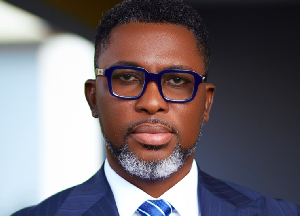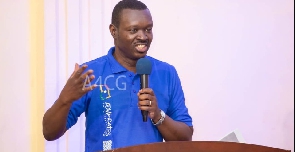The Public Utility Workers Union (PUWU), an affiliate of the Ghana Trades Union Congress (TUC), has said the decision by the Electricity Company of Ghana (ECG), to retrieve debts owed it by organisations and individuals is to help the company address its financial constraints.
This, the union explained, was far from the notion that the ECG was being prepared to be given out on concession.
The Deputy General Secretary of the PUWU, Mr Michael Adumatta Nyantakyi, in an interview with the Graphic Business said although the government had intimated several times that the ECG could not collect its money, thus the privatisation, the exercise had nothing to do with the concession.
“Revenue collection is an ongoing activity carried out by the company but this special mobilisation exercise is to achieve maximum results. The point is whether concession or not the company must carry out its core mandate of distribution of power and collecting bills from customers,” he said.
Mr Nyantakyi emphasised that the exercise supports the position of the workers that given the free hand to operate without any political interference, ECG could deliver on its mandate and would not need any private sector participation.
Therefore, he said, the assertion that what was being done was the result of the planned concession "was neither here nor there.”
ECG retrieves GH¢8.7m
From the first quarter of this year, the company has retrieved GH¢8.7 million from individuals and organisations that engaged in illegal power connection.
Between August and December in 2015, GH¢30 million was retrieved. The money was retrieved after the culprits had been caught by ECG officials who embarked on an exercise to clamp down on illegal power connection in different parts of the country.
The culprits were issued with summons to visit ECG offices for the assessment of the units that they had stolen, after which they would be billed and then made to appear before the Energy Court for prosecution.
The Director of Customer Service of the ECG, Mr Kobina Ato-Forson, said the operation had become necessary for the company to avoid commercial losses of power which translated into huge loss of revenue.
He said so far, about 10 out of the 80 districts of the ECG had been visited since the start of the operation last year, and added that the exercise would be extended to 23 districts by the end of the year.
Impact of loses
According to the PUWU, the illegal connection is also affecting the company negatively and will be continued and repeated often to flush out all such illegal connections and power theft.
Mr Nyantakyi said the revelation of illegal connections in some of the security institutions supported the view that no institution should be wholly exempted.
“The response from both the political and ECG management confirm the notion that there is excessive interference in the affairs of ECG. If we want the company to perform more efficiently then let’s remove the canker of political interference,’ he said.
He added that could easily be done by appointing a dynamic and competent leader for ECG on specific contract terms with key performance indicators.
Background
The government signed the second Millennium Challenge Corporation (MCC) Compact known as the “Ghana Power Compact” which seeks to double the access to power, improve the energy sector with special attention for scaling up Private Sector Participation (PSP) in the ECG, in an effort to address power generation and supply challenges.
Referred to as the largest United States (US) government-funded transaction under President Obama’s Power Africa initiative, it is expected to invest US$498.2 million to support the transformation of Ghana’s electricity sector and stimulate private investment.
Meanwhile, the US Ambassador to Ghana, Mr Robert Jackson, has described as misplaced attempts by workers of the Electricity Company of Ghana to frustrate the ceding of part of the management of the institution to a private entity.
He insists the ECG is saddled with a persistent challenge of not being able to meet demand which makes a pragmatic intervention, undisputed. “I am aware of their opposition but I think it is misplaced and do not think that they understand that this is not privatisation,” he said.
He said they needed to look at the fact that ECG was deeply in debt and the company had been struggling for years to meet demand and this was an opportunity.
“I believe that the power sector will be much stronger and much more reliable and will be able to provide the industrial base for future growth,” he added.
The Finance Director of the ECG, Frank Anokwarfo, recently told the Public Account Committee that the state alone owed about GH¢900 million.
The ECG has for the past few days commenced cutting power to some state institutions who are in huge debts.
Opinions of Wednesday, 13 July 2016
Columnist: Ama Amankwah Baafi



















